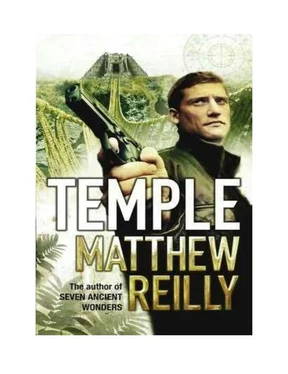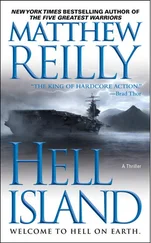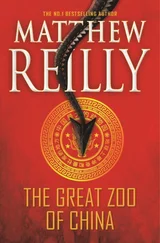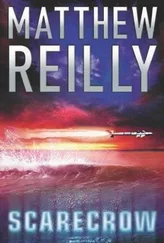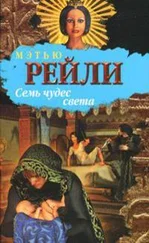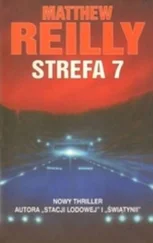‘What is it?’ Nash said.
‘We just caught a priority alert from Fairfax Drive,’ Copeland said.
Race had heard of ‘Fairfax Drive’ before. It was short hand for 3701 North Fairfax Drive, Arlington, Virginia. DARPA headquarters.
‘About?’ Nash said.
Copeland took a deep breath. ‘There was a breakin there early this morning. Seventeen security staff dead. The entire night crew killed.’
Nash’s face went ashen white. ‘They didn’t—’
Copeland nodded seriously. ‘They stole the Supernova.’
Nash stared off into space for a second.
‘It was the only thing they took,’ Copeland said. ‘They knew exactly where it was. They knew the codes to the vault room and had cardkeys for the clamp-down locks. We must assume that they also know the codes to the titanium airlock on the device itself, and maybe how to detonate it.’
“Any idea who it was?’
‘NCIS are there now. Early indications are that it might be the work of a paramilitary group like the Freedom Fighters.’
‘Shit,’ Nash said. “Shit! They must know about the idol.’
‘It’s likely.’
‘Then we have to get there first.’
‘Agreed,’ Copeland said.
Race was just watching this conversation like a spectator at a tennis match. So, there had been a breakin at DARPA but what exactly had been stolen was a mystery to him. Something called a Supernova. And who were these Freedom Fighters?
Nash stood up. ‘What’s our lead?’ he asked.
‘Maybe three hours, if that,’ Copeland said. ‘Then we have to move fast.’
Nash turned to Race. ‘Professor Race, I’m sorry, but the stakes in this game have just been raised. We don’t have any more time to waste. It is now imperative that we have that manuscript translated by the .time we fly into Cuzco, because when we hit the ground, believe me, we are gonna hit it running.’ With that, Nash, Copeland and Chambers moved off to areas of the plane, leaving Race alone with the manuscript. Race looked at the cover page again, scanned the rough texture of the photocopier’s ink. Then he took a deep breath and turned the page. He saw the first line, written in fine medieval calligraphy: MELIS NOMINI EST ALBERTO LIIIS SANTIAGO ET ILLG EST MELIN! He translated. My name is Alberto Luis Santiago and this is my story…
FIRST READING
On the first day of the ninth month in the year of Our Lord 1535, I became a traitor to my country.
The reason: I helped a man escape from a prison of my countrymen.
His name was Renco Capac and he claimed to be an Incan prince, the younger brother of their supreme ruler, Manco Capac, the man they called the Sapa Inca.
He was a handsome man, with smooth olive skin and long black hair.
His most distinctive feature, however, was a prominent birthmark situated directly below his left eye. It looked like an inverted mountain peak, a ragged triangle of brown skin that sat atop his otherwise clear complexion.
I first met Renco on board the San Vicente, a prison hulk that lay out in the middle of the Urubamba River, ten miles north of the Incans’ capital, Cuzco.
The San Vicente was the foulest of all the prison hulks that lay at anchor in the rivers of New Spain—an old wooden galleon no longer fit for ocean travel that had been dismasted and hauled overland for the sole purpose of housing hostile or dangerous Indians.
Armed as usual with my prized leatherbound Bible a three-hundred-page handwritten version of the great book that had been a gift to me from my parents upon my entering the Holy Orders—I had come to the prison hulk to teach these heathens the Word of Our Lord.
It was in this capacity as a minister of our Faith that I met the young prince Renco. Unlike most of the others in that miserable hulk—foul, ugly wretches who, owing to the shameful conditions my countrymen imposed on them, looked more as dogs than men—he was well spoken and educated. He was also possessed of a most unique sensitivity the likes of which I have not seen in any man since. It was a gentleness, an understanding, a look in his eyes that penetrated my very soul.
He was also of considerable intelligence. My countrymen had been in New Spain for but three years and he could already speak our language. He was also eager to learn of my Faith and understand my people and our ways, and I was happy to teach him. In any case, we soon struck up a friendship and I visited him often.
And then one day he told me of his mission.
Before he had been captured, so he said, this prince had been charged with travelling to Cuzco and retrieving an idol of some sort.
Not an ordinary idol, mind, but a most venerated idol, perhaps the most venerated idol of these Indians. An idol which they say embodies their spirit.
But Renco had been waylaid on his journey to Cuzco, captured in an ambush set up by the Governor with the aid of the Chancas, an extremely hostile tribe from the northern jungles that had been subjugated by the Incan people against their will.
Like many other tribes from this region, the Chancas saw the arrival of my countrymen as a means of breaking the yoke of Incan tyranny.
They were quick to offer their services to the Governor as informers and as guides, in return for which they received muskets and metal swords, for the tribes of New Spain have no concept of bronze or iron.
As Renco informed me of his mission and his capture at the hands of the Governor, I saw over his shoulder a Chanca tribesman who was also being held captive inside the San Vicente.
His name was Castino and he was an ugly brute of a man. Tall and hairy, bearded and unwashed, he could not have been more dissimilar to the young articulate Renco. He was an utterly repulsive creature, the most frightening form I have ever had the misfortune to lay my eyes A sharpened piece of white bone pierced the skin of his left cheek, the characteristic mark of the Chancas.
He always stared malevolently at Renco’s back whenever I came to visit the young prince.
The day he told me of his mission to retrieve the idol, was extremely distressed.
The object of his quest, he said, was locked inside a vault inside the Coricancha, or sun temple, at Cuzco. But Renco that day learned—by eavesdropping on a conversation two guards on board the hulk—that the city of Cuzco had recently fallen and that the Spaniards were inside its walls, sacking and looting it unopposed.
I, too, had heard of the taking of Cuzco. It was said that the looting taking place there was some of the most rapa cious of the entire conquest. Rumours abounded of Spaniards killing their fellow soldiers in their lust for the mountains of gold that lay inside the city’s walls.
Such tales filled me with dismay. I had arrived in New Spain but six months previously with all the foolish ideals of a novice—desires of converting all the pagan natives to our noble Catholic Faith, dreams of leading a column of soldiers while holding forth a crucifix, delusions of building high-spired churches that would be the envy of Europe. But these ideals were quickly dispelled by the wanton acts of cruelty and greed that I witnessed of my countrymen every day.
Murder, pillage, rape, these were not the acts of men fighting in the name of God. They were the acts of scoundrels, of villains. And indeed at the moments when my disillusionment was at its greatest—such as the time when I witnessed a Spanish soldier decapitate a woman in order to seize her gold necklace—I would wonder whether I was fighting for the right side. That Spanish soldiers had taken to killing each other during their plunder of Cuzco came as no surprise to me.
I should also add at this juncture, however, that I had heard rumours about Renco’s sacred idol before.
Читать дальше
